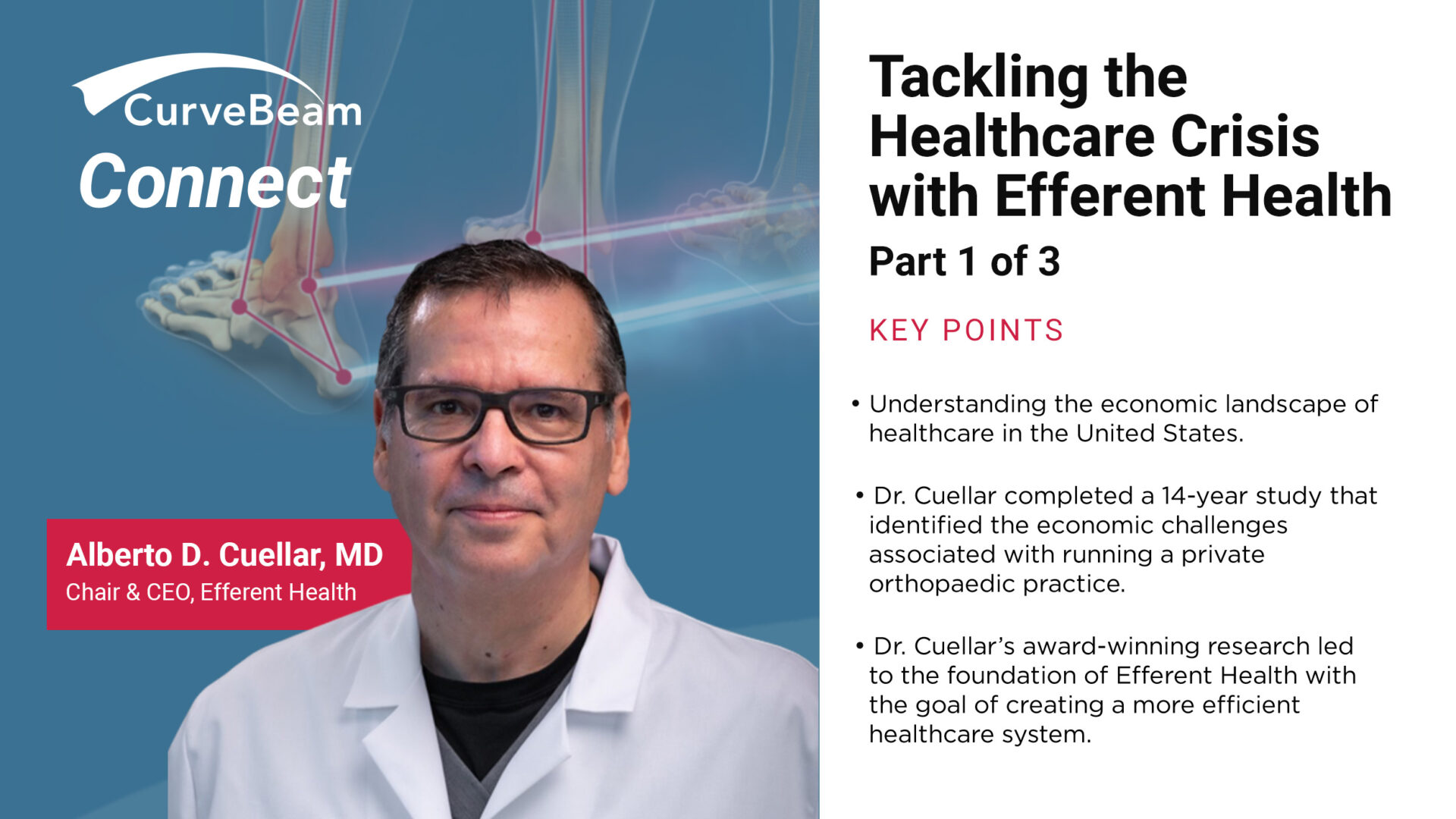
CurveBeam Connect: Innovative Technologies are Changing the Economic Landscape of the Healthcare System – Part 1 of 3
KEY POINTS:
- Understanding the economic landscape of healthcare in the United States.
- Cuellar completed a 14-year study that identified the economic challenges associated with running a private orthopaedic practice.
- Cuellar’s award-winning research led to the foundation of Efferent Health with the goal of creating a more efficient healthcare system.
When it comes to healthcare in the US, there is little doubt that the economics behind the system is somewhat of a mystery. With the rise in AI, IoT, and machine learning technologies, one would think the cost of healthcare would be on a downward trajectory. However, the reality is completely opposite.
Vinti Singh, Director of Marketing at Curvebeam, sat down with Dr. Alberto Cuellar, Co-founder and Chief Biomedical Engineer for Efferent Health who is also an orthopaedic surgeon specializing in hip and knee replacement surgery to discuss the fiscal well-being of the healthcare system. The conversation was so engaging that it turned into a three-part series.
Dr. Cuellar, once in private practice, decided to join Baylor Saint Luke’s Medical Group to continue serving patients due to the financial challenges associated with working in the private sector. He shared his knowledge in a 14-year economic study on private-practice orthopaedics at the 2013 American Academy of Orthopaedic Surgery Annual Meeting, which won best poster presentation.
“In the early 2000s anecdotally, I noticed the dropped an income from our professional services in our orthopedic group. In addition, we became more reliant on ancillary services such as partial ownership of a surgical facility, X-rays, MRIs, physical therapy, braces, and other medical equipment,” said Dr. Cuellar.
Initially, the study was meant to understand the financial dynamics of his group practice, but it evolved into finding ways to make prudent financial and operational decisions utilizing data. His work illustrated inefficiencies within private practices that were simply not sustainable. Singh noted that the “cost of technology and the efficiency that technology has afforded us has increased over time.” And one would think that if “healthcare was properly leveraging technology would have also in the inverse decreased but that is in fact not the case health care costs are rising.”
Dr. Cuellar’s work illustrated that healthcare costs actually rose 3000% between 1970 and 2018. With all these factors in mind, it’s no wonder Dr. Cuellar decided to use his expertise to found Efferent Health where technology automates healthcare systems to reduce costs and increase efficiency.
Read part 2 here.





